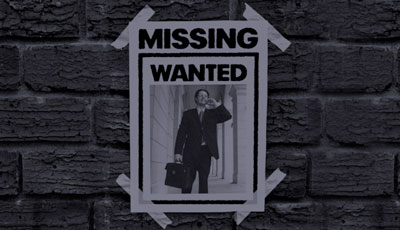The Case of the Missing White-Collar Criminal

The senior executives who played leading roles in the 2008 financial crisis can breathe a sigh of relief: If any committed crimes, the statute of limitations will run out for most of them this year. It’s safe to say nobody will go to jail.
One doesn’t have to presume guilt to feel that the lack of prosecutions raises some nagging questions: Did prosecutors exhibit impressive restraint in refusing to satisfy the public’s desire for retribution, or are they just incapable of punishing criminals in positions of power? Are changes needed in the way the criminal justice system handles white-collar crime?
Prosecutors often argue that while executives may have acted recklessly and made mistakes, that doesn’t mean they committed crimes. If so, then the 2008 crisis would be unique in its immaculate conception. After the savings-and-loan bust of the 1980s, more than 1,000 people were charged, and more than 100 company officers and directors served prison terms. The accounting and other corporate scandals of the early 2000s led to criminal charges against at least 30 top-level executives, most of whom were convicted or pleaded guilty.
Even where the government has demonstrated that crimes occurred in and around the crisis, individual culpability has been notably lacking. From 2009 through May 2014, federal prosecutors filed or threatened criminal charges in 21 separate actions against major financial companies, which admitted to such misdeeds as laundering hundreds of millions of dollars for Mexican and Colombian drug traffickers, systematically lying about their borrowing costs, and devoting hundreds of employees to helping U.S. citizens commit tax fraud. A company typically can’t be charged unless a real person committed a crime. Yet in just eight cases did prosecutors pursue individuals — none of whom were high-level executives:
Why have executives been so improbably absent from criminal proceedings? It’s safe to assume that legal sophistication, combined with the complexity of the instruments and institutions involved, helps insulate them from responsibility. That said, prosecutors have also changed the way they operate: Going after companies — originally an ambitious idea aimed at combating systemic corruption — has proved more advantageous for them than the long, painstaking work of building cases against highly placed people.
Large corporations have demonstrated a willingness to pay eye-popping sums, at shareholders’ expense, to avoid the uncertainty and embarrassment of extended trials. Prosecutors with limited resources, no matter how dedicated to justice they may be, can’t ignore the attractions of such negotiated settlements: more headlines, more money for victims and federal coffers, less risk of failure, and better statistics with which to impress bosses and potential employers in the private sector. All told, they’ve extracted some $10 billion since January 2009, with a possible $10 billion more coming from French bank BNP Paribas SA for evading U.S. economic sanctions.
The focus on companies, though, limits prosecutors’ ability to impose appropriate punishment. Convicting businesses can harm innocent employees and the broader economy — a lesson learned when the 2002 prosecution of Enron Corp. auditor Arthur Andersen LLP cost thousands of people their jobs. The stakes become even higher with a systemically important bank. Hence, U.S. attorneys tend to tread carefully. Even if they demand a guilty plea — as they did last month in Credit Suisse Group AG’s tax-fraud case — they go to great lengths to make sure the damage isn’t too severe.
Such negotiated justice has consequences. If executives can buy impunity using shareholders’ money, punishment loses its deterrent effect. If prosecutors can extract big-ticket settlements without even filing charges, as they do in so-called nonprosecution agreements, there’s little to protect companies from shakedowns. If U.S. attorneys spend their time cutting deals with companies, they lose the skills needed to investigate complex cases and bring them to trial.
There’s no easy solution. That said, the Justice Department and Congress can make it harder for prosecutors to take the easy way out.
The attorney general, for example, can order U.S. attorneys not to take action against companies unless individuals are being charged as well. Nonprosecution agreements should be eliminated: If a case is too flimsy to file charges, drop it. When it comes to deferred prosecution agreements, in which prosecutors file and settle charges, Congress — or the Judicial Conference, which drafts changes to the rules of criminal procedure — can give judges specific powers to ensure that the deals adequately serve the public interest. Such judicial review is already being adopted in the U.K.
The evidence strongly suggests that prosecutors could have done more to identify and punish the people who caused a crisis that has visited suffering on millions. The resulting lack of clarity fuels indiscriminate resentment toward “bankers” as a class and supports the narrative that highly placed executives are above the law. Everybody, including executives, should be interested in making sure that next time around, the justice system is capable of doing its job.
Source: bloomberg






























